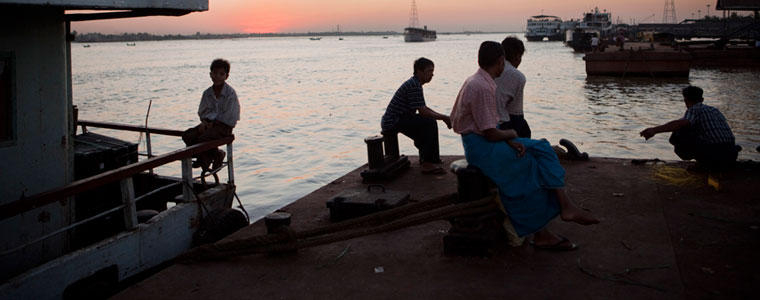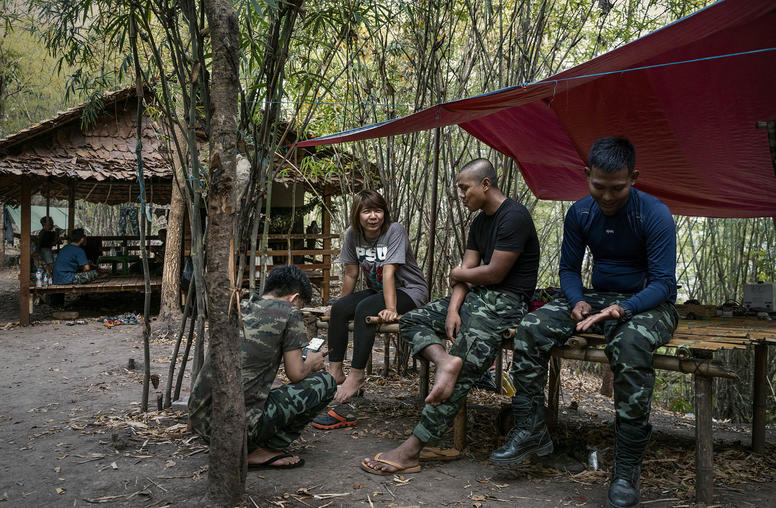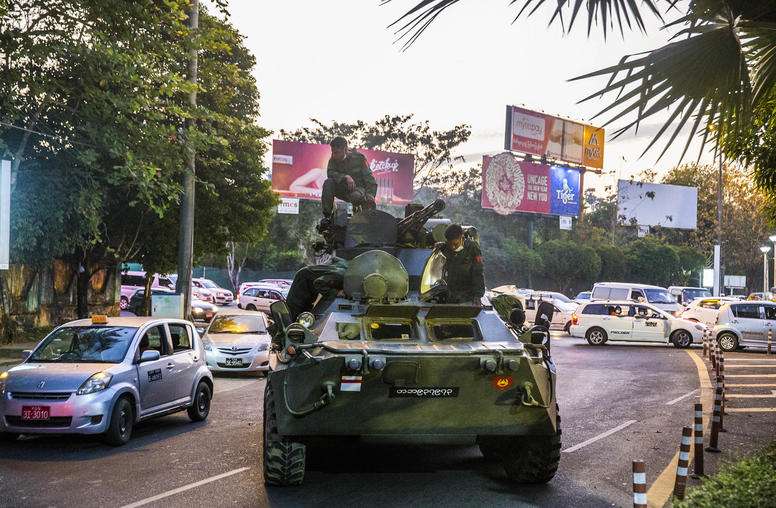USIP’s Colette Rausch, director of the Institute’s Rule of Law program, is in Burma at a historic time. The U.S. on January 13 announced it would send an ambassador to Burma after the military-led government agreed to free political prisoners and implement other reforms. This effectively ends the U.S. isolation of the Burmese government. Around the same time, the Karen rebels agreed to a ceasefire that would end decades of fighting if it holds. Just prior before these major developments, Rausch filed the dispatch below from Yangon, the former capital of Burma.

Yangon, Burma
This past year, Burma saw significant changes designed to transform it from a country in total isolation and under complete military rule to a budding democracy. Since his election in 2010, President Thein Sein has introduced positive, yet incremental reforms on the political, social and economic fronts. With these reforms, public skepticism is slowly diminishing and in its place is cautious optimism. Contributing to this optimism is Aung San Suu Kyi’s willingness to join the still imperfect political system in support of President Sein’s efforts to reform. She will be running for a vacant seat in the parliament in the April 1 elections. Though there is a long road ahead to democracy, and the potential for reversal remains, many are beginning to believe that the positive change underway must be nourished and reinforced by institution-building in order to make it more difficult to turn back. The key challenge is how to carry the transition safely over the hurdles presented by Burma’s decades-long isolation and totalitarian history.
I have been in Burma for the past week as part of a delegation led by the Asia Society to engage in Track II discussions with representatives from a newly created, independent research institute that provides policy advice to Burma’s president. The goal of the dialogue is to establish an ongoing channel of communication and explore opportunities for cooperation to advance relations between the U.S. and Burma. Discussions focused on issues related to environmental sustainability and economic development, rule of law, democracy building and people-to-people exchanges. During our meetings in Yangon and Burma’s capital Naypyitaw, we also met with government officials, representatives of the business community and civil society.
The years Burma spent in isolation has left it without the tools for managing modern political and economic life. There is an urgent need for exposure, awareness and capacity building to develop the systems and structures needed to foster an emerging democracy. During our trip to Burma this month, a common refrain from those we met was: “we lack awareness, knowledge and capacity. Without these, we cannot build our democracy.” As one person declared, “We have been hibernating for so long. We are starved for information and capacity building. Only a small handful in the country have capacity and that is not enough.” Accordingly, training is needed in all sectors: public, private, government and civil society. There is recognition that their lack of capacity is debilitating and they welcome assistance. “We need everything. You name it, we need to reform it,” one person said.
Further, Burmese business, government and civil society representatives with whom we met were very humble and welcoming of assistance, specifically from the U.S. The new government’s reform element believes in an urgent need to move reforms forward and to do it properly, inclusively and in line with democratic principles. Those we met with:
- Seek to stimulate economic growth but with sustainability and environmental factors integrated
- Recognize the need for the government to show timely and concrete deliverables to the Burmese people
- Understand that the country is stymied by economic sanctions compounded by a lack of human and institutional capacity to deliver on needed reforms
With the desire for change growing, the government faces the precarious task of balancing the need for immediate changes with the need to make good reform decisions and to maintain stability. Despite the incremental nature of the actual changes on the ground so far, it is certain that the new government contains a strong reform element that is giving the Burmese people new hope and even respect for the government, especially the president. But it will be critical to deliver tangible positive outcomes for the people soon.
Our delegation included Suzanne DiMaggio, Asia Society’s vice president of Global Policy Programs; Priscilla Clapp, former U.S. chargé d'affaires in Burma; Dr. Ji-Qiang Zhang, vice president of Programs for the Blue Moon Fund (an environmental foundation based in Charlottesville, VA); Debra Eisenman, assistant director of Global Policy Programs at the Asia Society; and Billy McCarthy, program assistant for Blue Moon.



